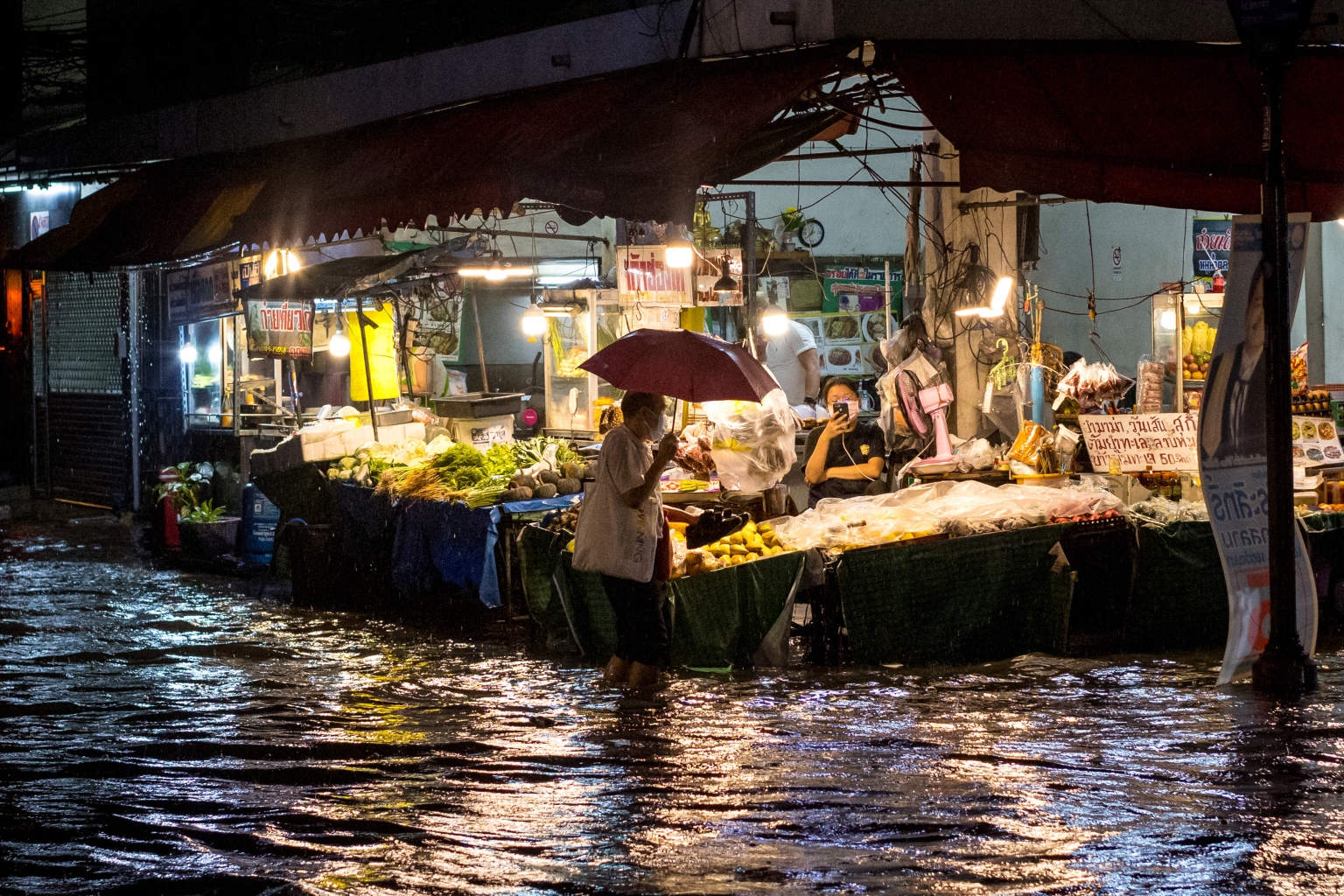Asean needs to prepare for greater weather extremes and food price spikes: Study
Sign up now: Get ST's newsletters delivered to your inbox

Global forecasting firm Oxford Economics estimates that the costs of producing food could increase by as much as 80 per cent by 2050.
PHOTO: AFP
SINGAPORE - Hotter and wetter weather is already having an impact on crops in South-east Asia, and climate change is set to bring even greater extremes that will disrupt food supply chains and food prices in the region, global forecasting firm Oxford Economics said.
Presenting its findings of a recent analysis of climate impacts on the region, the advisory company said in a webinar last Thursday (June 23) that governments in the region need to implement more ambitious policies.
These guidelines must not only cut greenhouse emissions but also minimise greater food price volatility, especially for the poor.
The transition to greener economies and the race to achieve net-zero emissions by mid-century also present cost challenges but these can be tackled with the right policies, Oxford Economics said.
The findings come amid spikes in food prices globally because of supply disruptions caused by the war in Ukraine, which has upended the grain market and caused prices of energy and fertiliser to soar.
The poorest nations have been hit the hardest.
The Oxford Economics study was commissioned by Food Industry Asia.
The advisory firm looked at how the weather has changed in five Asean countries: Indonesia, Malaysia, the Philippines, Thailand and Vietnam.
“South-east Asia is getting wetter and warmer, particularly in the last decade compared to the previous two.
The advisory firm looked at how the weather has changed in five Asean countries: Indonesia, Malaysia, the Philippines, Thailand and Vietnam.
“South-east Asia is getting wetter and warmer, particularly in the last decade compared to the previous two.
“And the frequency of extreme weather events is becoming greater,” Mr Tom Rogers, Oxford Economics’ head of macroeconomic consulting for Asia, said in the webinar on the report which was released in March.
Temperatures are spiking more frequently, along with more heavy rain events and periods of drought.
Thailand and the Philippines, in particular, have recorded more wetter months compared with the long-term average.
More volatile weather makes it more difficult for farmers and other parts of the food supply chain to function.
“And these extreme events are going to become more frequent in the next decades, regardless of the level of climate ambition that governments around the world show,” Mr Rogers said.
Climate scientists say the world will continue to warm for some time even if humanity stopped producing greenhouse gas emissions.
The study found that heatwaves in Thailand in December 2014 and in Vietnam in February 2019 contributed to food prices going up between 5 and 6 per cent during those months.
Agricultural yields, though, would not be immediately affected by more extreme weather, Mr Rogers said.
This is because more carbon dioxide (CO2) in the air leads to more efficient photosynthesis, meaning crops grow a little faster.
But that benefit is outweighed in the longer term as temperatures continue to rise. By the second half of this century, yields will decline.
To reduce the impact of price shocks, governments need to take steps, including protecting vulnerable consumers, the report added.
Greater spending on social assistance, targeted at the poorest consumers, would help shelter them from food price volatility.
Countries in the region also need to use agricultural spending more efficiently, said the report.
For example, costly price-support schemes for farmers and subsidised farm inputs, such as fertiliser, distort farmers’ behaviour and lead to inefficiency.
Focusing spending on measures to improve climate resilience would reduce vulnerability to extreme weather, said the report.
Greater uptake of farm insurance is another key policy step because insurance payouts after bad weather mean farmers can restart production faster.
Limiting warming to 1.5 deg C above pre-industrial levels, a key goal of the Paris climate agreement, can reduce the impacts of bad weather.
But the report said the green transition could also trigger price rises, especially from higher energy costs.
Oxford Economics estimated that the cost of producing food could go up by as much as 80 per cent in countries such as Indonesia by 2050, as governments implement measures aimed at achieving net-zero emissions.
However, governments should protect consumers from the added costs of moving towards sustainable methods, said the report.
Oxford Economics recommends that governments support farmers in adopting measures such as solar panels and the conversion of food waste to energy, which would make them less reliant on electricity from the grid.
Boosting direct foreign investment by removing barriers to investors in the agriculture sector would open up new technologies and productivity gains.
Further opening up to trade and lowering agricultural tariffs could also drive higher productivity.
“We think there’s a lot that governments can do about it, we think there are plenty of policy options,” Mr Rogers said.
“There’s a need to start the discussion about how best to go about both mitigating short-term impacts of food price volatility, and also tackling that cost of transition.”
Singapore's core inflation hit 3.6 per cent in May on the back of rising food prices - the highest core inflation rate the Republic has faced since December 2008, when it hit 4.2 per cent.


